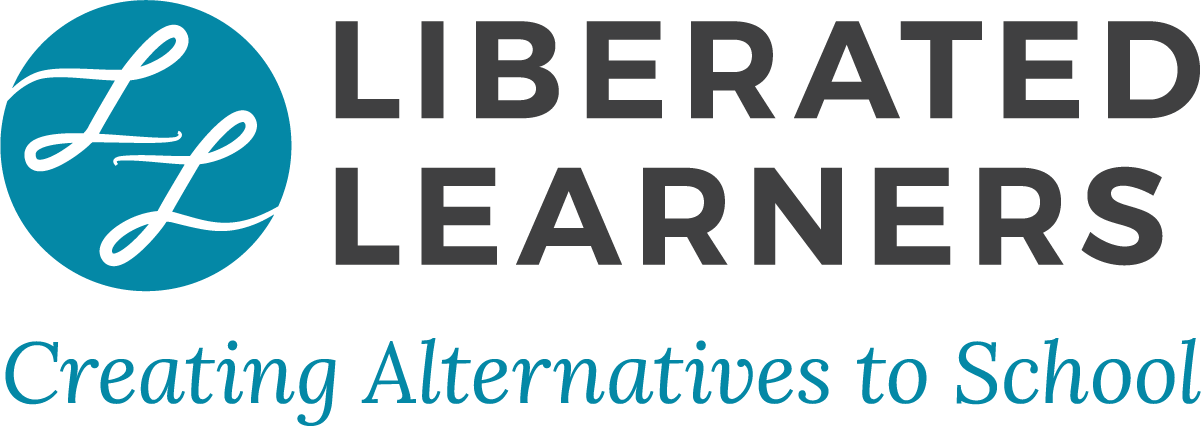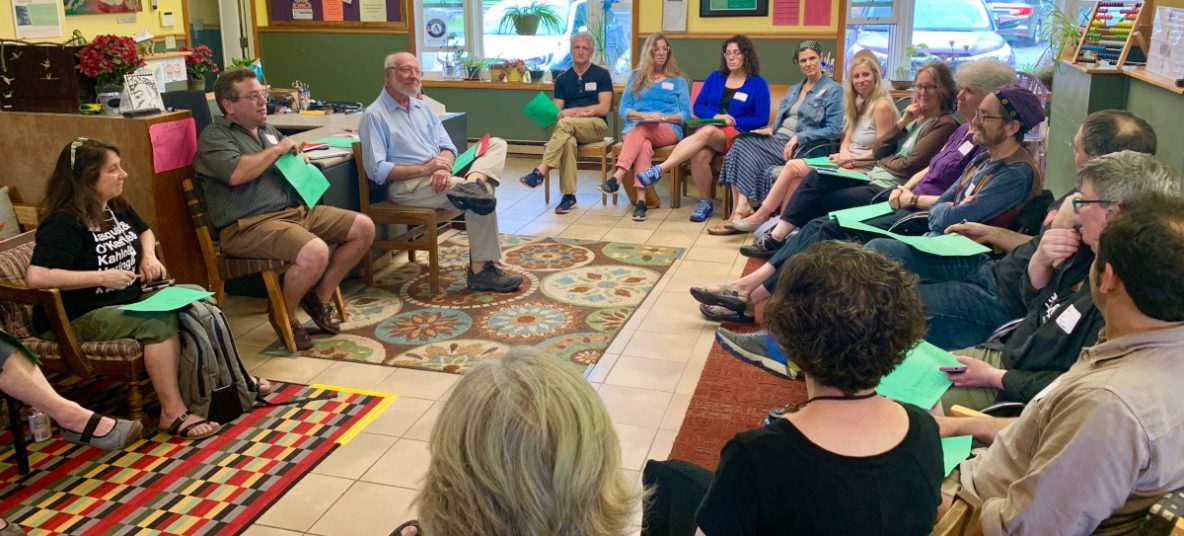Blake Boles began Off-Trail Learning podcast, originally called Real Education, in March 2015. He begins that first episode: “…on this show I interview remarkable people who think way outside the box in education.” And who was his first remarkable interviewee? None other than Ken Danford, “On Thriving Without School“. Liberated Learners was still in its start up phase at the time, barely two years in. With a more mature approach to helping people start Self-Directed Education centers and a growing reputation in the larger SDE movement, Blake interviewed Ken for his 63rd episode this fall: “On Liberated Learners”. Here are a few highlights.
The interview begins with a discussion of what Ken’s been up to since the original episode, including his 2017 analysis of outcomes for North Star alumni. Ken offers some backstories and reflects on what can be concluded, and then Blake sums it up: “your study is one of the main reasons that when people now ask…how do [homeschoolers] turn out, I [can] say: ‘Unschoolers, self-directed learners, seem to do just as well in terms of going on to college as other kids in their same socioeconomic bracket seem to do. There’s not a big difference in either direction.'” Ken agrees: “Future outcomes [for kids don’t] hinge on one approach or the other,” except that when a kid in school “is feeling miserable and rotten and we get them out and they feel better and start taking risks, that’s really significant change.”
Ken offers some history of how Liberated Learners got started and the basics of what the network offers to support centers. He then turns to detailing the struggle of starting a center, which boils down to getting enough kids, and bringing in enough money to cover overhead and pay the staff. Running a center is like running a small business, and the success rates on that are well documented: 80% make it to the second year, with a bit more than half making it to their fourth year. So what’s the secret to starting a successful center. Ken offers two essentials: “it seems that when [a center] works well the people starting it have a team, it’s not a solo person, and there are a couple people…on this team that want a center to be created, and actually want to work in a center, and around that are a bunch of people who don’t want to work in a center, but really want it to exist. And collectively these people go around and they talk up the concept to, not dozens, but literally hundreds of people in the community.” Following that there’s the luck of finding a space and the first members. Ken makes the case that the best approach to finding members is not existing homeschoolers, but rather kids who are unhappy in school.
In response to Blake’s question about how Liberated Learners centers fit into the broader ecosystem of alternatives to school, Ken refers to Blake’s 2019 AERO keynote that “we all have a lot more in common than we do differences.” We all agree “with trusting teens and believing in the power of choice, and accepting no for an answer from kids, and not trying to make kids learn things because we think they ought to, and giving kids freedom of space to move about…. We should all be glad that all of us are trying to open up the world for teens” in this way. What makes Liberated Learners centers unique in some comparisons is that they are not schools, and therefore don’t require daily attendance, and often members don’t consider themselves tied to attending until they are 18. “We claim less time or obligation from people to attend [a Liberated Learners center] and therefore kids can be at home, and kids can have other activities and programs and classes and jobs, and the whole world is their oyster, rather than just we created a better building for them to come to than the public or private school they were at before us.” Blake follows up with the notion that Liberated Learners centers ask families to become homeschoolers, that the parents are the ones responsible for “signing off” on their child’s education, and the center’s staff is there to support the process. This puts a “fundamental sense of responsibility and ownership in the hands of the learner and of the parents”, which is a deeply empowering act.
Want to better understand the landscape of options in alternative education? Thinking about starting a Liberated Learners center? Check out the full 56-minute discussion.
Share this Post

